Laylah Amatullah Barrayn
Laylah Amatullah BarraynNew York, NY USAhttps://laylahbarrayn.format.comInstagram: @laylahb
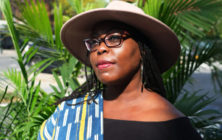
Laylah Amatullah BarraynNew York, NY USAhttps://laylahbarrayn.format.comInstagram: @laylahb

Did you always know you wanted to be a creative and a photographer?
LAYLAH: I knew from early on that I did want to use the camera to express myself and to document. So I knew I wanted to do that. I knew the camera needed to be in my life in that way. I saw its power. I saw its healing power. I saw its power to fortify and create identity. I saw its power to be empowering. I knew that very early on and I wanted that to be close to me. I knew that I wanted to create, I knew that I wanted to be an artist. I grew up understanding the power of art, particularly how art was used through activism. Growing up in the eighties, one of the big events was with the divestment of apartheid. You had political activists, but also you had artistic activists speaking and working toward the divestment and eventually the dissolution of apartheid. I saw those things in real life. I just felt very artistically inclined since as long as I can remember. I knew that I wanted to do that when I grew up and have that be a part of my career.
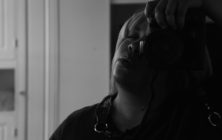
Did you always know you wanted to be a creative and a photographer?
SCHAUN: I’ve always known that I wanted to be a creative. I knew that I wanted to be involved in visual arts. I did not immediately believe that I was going to be a photographer. I think it was just something that I was drawn to when looking at pictures and movies. I actually thought that I would be a filmmaker.

Schaun ChampionBaltimore, MD USA https://schaunchampion.comInstagram: @schaunchampion
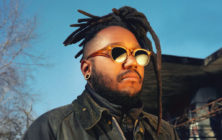
Marzio Emilio VillaMilan, Italy Europe https://www.marzioemiliovilla.comInstagram: @you_is_photograph
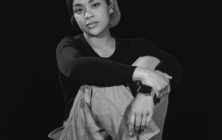
Bria Sterling WilsonBaltimore, MD USA https://www.bsterlingphotography.comInstagram: @b.sterling__

Did you always know you wanted to be a creative and a photographer?
MARZIO: I started photographing eighteen years ago, I was sixteen years old. In 2003, I remember I wanted to become a war reporter. In those years photo reporters started to be considered artists that could sell in the art market. At the same time, the world of photography started to talk about “how photography can be ethical”. I immediately followed this thought to the point that I considered disturbing and hypocritically buying and selling this type of photography that represents the suffering of racialized bodies and oppressed people. Eighteen years ago I hadn’t a dialectic to explain or understand that it was just the oppressor buying photographs of their own oppression. I told myself that I would try to find a good way to be ethical and respectful to my subjects. There’s always a relation between the photographer and his subject; western photographers have a eurocentric vision on a Black subject and this is a reminiscence of a white colonial privilege. There’s no ethics and these images can be the last process of oppression.

Did you always know you wanted to be a creative and a photographer?
BRIA: Yes, actually at a very young age. I was interested in drawing and painting when I was in middle school. My mother was an artist as well, so I definitely think that piqued my interest in the arts. I received my first Minolta film camera in high school. That opened the door to photography for me and I never looked back.
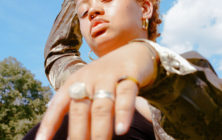
Asha Jamila HolmesBaltimore, MD USAInstagram: @cuteandcultured
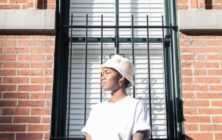
Shan WallaceBaltimore, MD USAhttp://shanwallace.workInstagram: @_yoshann